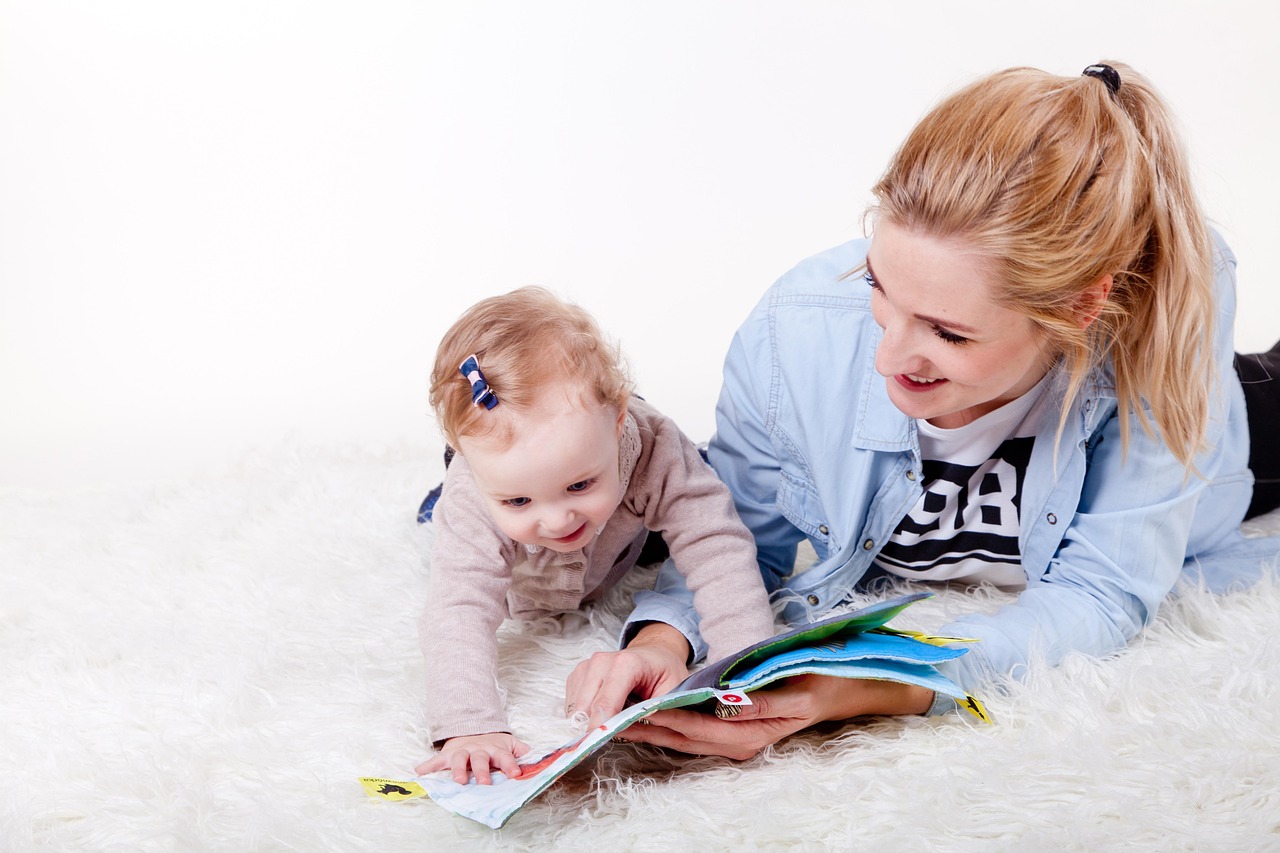
By: PAT MELGARES
K-State Research and Extension
Teaching literacy skills to children in their earliest years does far more than prepare them to read — it helps build the very foundation of their brain development, say two Kansas State University Extension agents.
“We’re really laying the foundation from ages zero to 3 with all of the opportunities for kids to learn,” said Monique Koerner, family and consumer wellness agent for K-State Extension’s Cottonwood District. “We know that brain development is huge in those early years, and literacy is a piece of that puzzle.”
According to the K-State Extension fact sheet, Early Literacy: Building the Foundation for Lifelong Learning, brain growth is rapid in a child’s first three years, and language and literacy activities help form lasting neural connections.
From birth to 12 months, babies are already busy wiring their brains for communication. Lisa Newman, family and consumer wellness agent in the Central Kansas District, said that even newborns recognize familiar voices.
“You can take a newborn, and they already recognize Mom and Dad’s voices, even siblings,” Newman said. “You can see evidence of that when they turn their heads toward those voices shortly after birth.”
Newman added that talking to infants throughout the day — whether during diaper changes, in the car, or at bedtime — helps strengthen those language pathways.
“Reading to your child every day, even from the get-go, is important because what’s really happening during that time is language development and making those brain connections even stronger,” she said.
It’s also well known that babies are much more able to process and learn various languages than adults are able to do.
“If you take a baby that’s born in Kansas, and take them somewhere to a foreign land, those connections can be strengthened by hearing the language that’s around them,” Newman said. “That’s why it’s easier to learn an additional language when you’re young — those brain connections are there and can be strengthened.”
Koerner added that “the plasticity of the brain is greater when we’re younger,” making early exposure to multiple languages especially beneficial.
Between 12 and 24 months, children begin to use expressive language. “By 18 months or so, children pretty much understand everything that’s being said to them,” Koerner said, “but they may not be able to speak it yet.”
Words like ‘Mama,’ ‘Dada,’ and ‘ball’ often appear first, followed by simple two-word phrases around age 2.
“Oftentimes you’ll see that language explosion around 18 months,” Newman said. “That expressive piece really starts to blossom during that time.”
From ages 2 to 3, children’s vocabularies expand rapidly, fueled by everyday conversations and shared reading. “Books can expose children to new topics and new words that might not be part of their everyday experiences,” Koerner said.
Koerner encourages parents to use “parallel talk” — describing what a child is doing — and “self-talk,” or narrating their own actions throughout the day. “Just really enriching their vocabulary by talking about what they’re doing,” she said.
Repetition also helps build connections. “There may be a treasured book they want to read over and over again, and that’s perfectly normal,” Newman said. “Repetition is part of their literacy and language skill.”
Exploring new places and experiences adds another layer of learning. “It’s so important for parents to get children out and explore new things,” Koerner said. “That will expose them to new opportunities, new vocabulary, and new experiences that help the brain develop.”
Both agents emphasized that parents are their children’s first teachers. Trusted programs such as Parents as Teachers, Early Head Start, and Infant-Toddler Services can guide families who have questions about developmental milestones.
Simple routines also matter. The American Academy of Pediatrics promotes the “Brush, Book, Bed” approach — brushing teeth, reading, and then going to bed. “It sets parents up for a good bedtime routine and supports brain health,” Koerner said.
Newman noted that any reading time counts. “You see a lot of initiatives suggesting 15 minutes a day, but I believe any reading — whenever it fits into your day — is wonderful,” she said.
Koerner added, “Every family is different, and every child is different. Do what works best for your family.”
For more information, download Early Literacy: Building the Foundation for Lifelong Learning at https://bookstore.ksre.ksu.edu/download/early-literacy-building-the-foundation-for-lifelong-learning-fact-sheet_MF3691.
More information also is available at local extension offices in Kansas.





